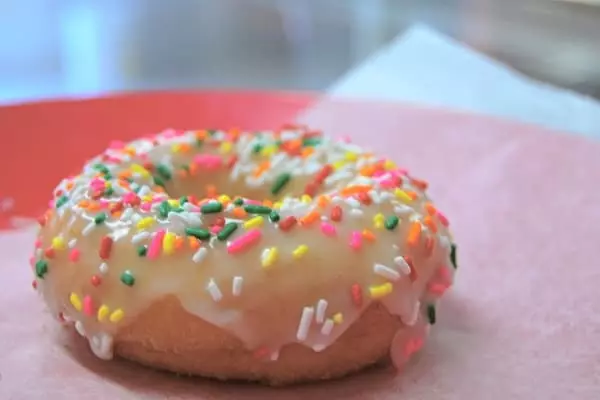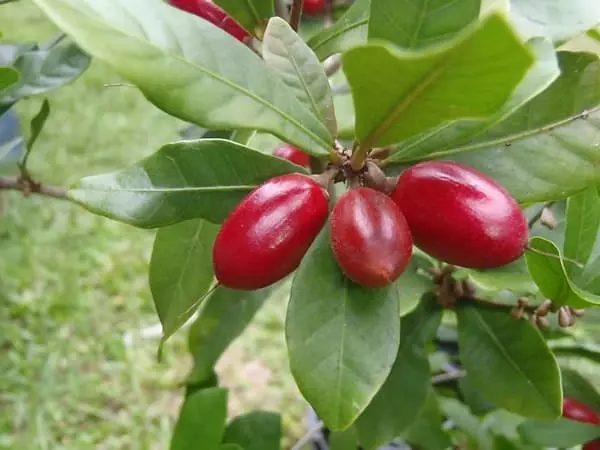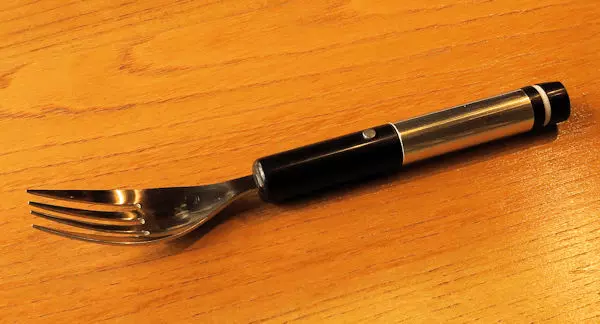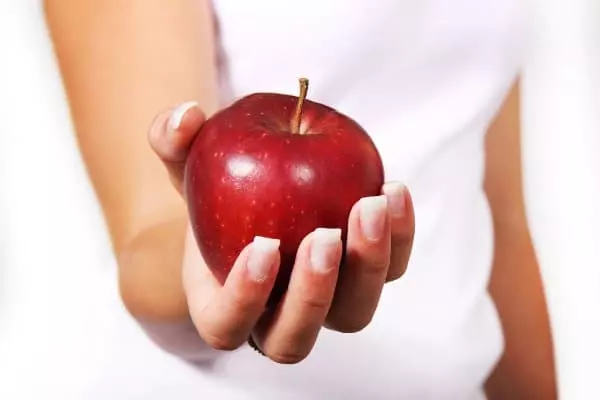Rich Cooper is a writer and journalist based in London, UK. His writing focuses on mental health, sex and relationships, and technology. His favourite food is pizza and will do almost anything for a slice.

Photo Credit: tommy chheng
Unless you’re Gwyneth Paltrow, you probably allow yourself a sugary treat now and then. Whether it's the odd cake in the office or a refreshing can of soda after a hard day, sugar cravings can be hard to ignore, and with a sweet temptation round every corner, it seems like the food industry is trying its best to ruin our teeth.
It’s well known that large quantities of sugar can have terrible implications for our health. Rotting teeth, obesity, diabetes, heart disease – sugar has been strongly linked with a plethora of conditions, and these issues are only getting worse.
In 2012 an estimated 2.2 million deaths were attributed to high blood glucose, so why isn't more being done to tackle this problem? It's not just as simple as taking sugar out of everything. People like sugar, they don't want to compromise on taste, and some food products actually need sugar to work. Therefore, the food industry needs to look into alternatives.
New developments in food science could be the secret to making a sweet product without the bitter health problems. From tricking the brain using electricity, to using natural alternatives, there may yet be a way to create that perfect sugar-free donut.
Decoding Food Labels

Photo Credit:James Palinsad
Artificial sweeteners are as common as a can of Diet Coke, but seeing an ingredient such as ‘acesulfame potassium’ on a food label isn't exactly comforting. Consumers are becoming warier of ingredients they don’t recognize, and when newspapers start to throw the word 'carcinogenic' around, it’s easy to see why.
Research by credible bodies such as the National Cancer Institute and U.S. Food and Drug Administration (FDA) say that artificial sweeteners are safe to eat at the levels we currently consume, but they may still contribute to obesity. Some studies have found a correlation between drinking diet soda and weight gain. The research suggests that artificial sweeteners alter your body's chemistry, making your brain think you need to eat more, although the findings are inconsistent. The backlash against artificial sweeteners has forced food innovators to go back to nature to find the solution, as well joining a growing trend of producers labelling their products with clear, understandable ingredients lists.
Food scientists are searching far and wide for the next natural sweetener. A natural sweetener is classed as “originating from a non-man-made source, such as a plant, animal, mineral or microbe". Stevia, an extract from the South American plant Stevia rebaudiana, has exploded in popularity in recent years due to its natural origin and low calorie allure. However, it has a bitter aftertaste when used on its own, so it usually needs to be combined with another calorific natural sweetener, such as honey.
That’s where Monk Fruit Extract comes in. Originating from the South American fruit of the same name, Monk Fruit Extract sounds much friendlier on a label than acesulfame potassium or any other artificial sweetner, and it has a sweet, complete taste with little to no calories. Fruits or fruit powders are another way to introduce natural sugars into products. Whilst other natural sweeteners, such as brazzein, are also being investigated, the food industry are forever conscious about how it sounds on the ingredients label – if the customer doesn't like the sound of it, the customer won't buy it.

Photo Credit: Hamale Lyman
Mind over matter
It takes two to tango when it comes to taste: what's in your mouth and what's in your head. So is there a way of manipulating your brain into thinking something is sweet when it isn't? There has been numerous cases where our brain has fooled us into thinking our food is more flavorful or sweet than it really is. Combining sensual stimuli can change our perception of taste.
For example, have you ever thought the different colors of Fruit Loops were different flavors? When we think of the color red, we think of sweet berries; when we smell vanilla, we get that sweet vanilla taste, and a grainy texture makes us think of granulated sugar. There might not be an ingredient that actually tastes sweet present in the product, but our brains can perceive it to be. The food industry can use these elements to fool our senses and reduce the amount of sweetener or sugar in our food. Let’s just hope our brains don’t figure it out first.
There's another way to trick our brain that is nothing short of miraculous. Ever bitten into a lemon and thought it tasted sweet? No? Well, the Miracle Fruit can make us do just that. When the fruit is consumed, a molecule within the plant attaches to our taste buds, allowing us to swap sour tastes for sweet until our salvia washes the fruit away (which usually takes about half an hour). This effect is called Miraculin, and is also present in artichokes to a lesser extent. Whilst tablets of Miracle Berry Fruit are available, putting it into a food product is a bit more complex. Keep an eye on the supermarket shelves, though - this could be the food of the future.

Photo Credit: Nikkei Technology
Shock to the system
Electricity can have unusual yet useful applications when producing a food without sugar. Here’s where it gets really futuristic: we can use electricity to manipulate our taste buds. ‘Electric flavoring’ is gaining popularity and, while rather difficult to commercialize at present, could be a possibility in the future.
Researchers at the University of Singapore have developed electrodes which stimulate the tip of the tongue to generate tastes such as salt, sweet, sour and bitter. An electric fork that increases the salty taste in food has already been developed by researchers at University of Tokyo, and this could be developed further to produce more cutlery with a buzz. A sweet spoon to eat your sugar-free ice-cream could be on the cards.
Do we even need sugar in our products?

Photo Credit:gordonplant
Taking the sugar out of bakery products is not easy. When it comes to sugary drinks reducing the sugar is fairly simple; they can be replaced by sweeteners without affecting the mouth-feel of the product. When it comes to removing the sugar from pastry products or cakes, the result has an unpleasant texture and can shorten the product's shelf-life. This is because other ingredients in the mix, like starch and fat, actually need the sugar to react with; without sugar, the mix just isn't right. The addition of other ingredients such as thickeners and stabilizers can help with this, but it is very much a work in progress.
Helping ourselves

Photo Credit: Petr Kratochvil
Ultimately it's up to us to take responsibility for our diets. The food industry isn't forcing us to eat sugar, we always have a choice not to have it. The more sugar you have in your diet, the more you crave it, so rather than looking to the food industry to invent the perfect guilt-free treat, for now it's better to enjoy sugar in moderation. We'll have the sugar-free solution someday, but for now we just need to wait.
All photographs licensed under Creative Commons
###
Your email address will not be published. Required fields are marked with *.